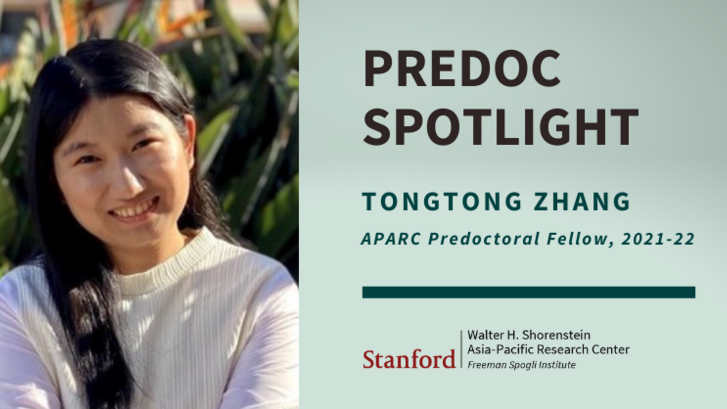The Walter H. Shorenstein Asia-Pacific Research Center (APARC) is pleased to announce a suite of training, fellowship, and funding opportunities to support Stanford students interested in the area of contemporary Asia. APARC invites highly motivated and dedicated undergraduate- and graduate-level students to apply for these offerings:
APARC seeks current Stanford students to join our team as paid research assistant interns for the duration of the summer 2023 quarter. Research assistants work with assigned APARC faculty members on varied issues related to the politics, economies, populations, security, foreign policies, and international relations of the countries of the Asia-Pacific region. This summer's projects include:
- The Biopolitics of Cigarette Smoking and Production
- The Bureaucratic State: A Personnel Management Lens
- China’s Largest Corporations
- Healthy Aging in Asia
- Hiding in Plain Sight: How China Became A Great Power
- Nationalism and Racism in Asia
- U.S. Rivals: Construct or Reality?
All summer research assistant positions will be on campus for eight weeks. The hourly pay rate is $17.25 for undergraduate students, $25 for graduate students.
The deadline for submitting applications and letters of recommendation is March 1, 2023.
Please follow these application guidelines:
I. Prepare the following materials:
II. Fill out the online application form for summer 2023, including the above two attachments, and submit the complete form.
III. Arrange for a letter of recommendation from a faculty to be sent directly to Shorenstein APARC. Please note: the faculty members should email their letters directly to Kristen Lee at kllee@stanford.edu. We will consider only applications that include all supporting documents.
For more information and details about each summer research project, visit the Summer Research Assistant Internships Page >
APARC supports Stanford Ph.D. candidates who specialize in contemporary Asia topics. The Center offers a stipend of $37,230 for the 2023-24 academic year, plus Stanford's Terminal Graduate Registration (TGR) fee for three quarters. We expect fellows to remain in residence at the Center throughout the year and to participate in Center activities.
Applications for the 2023-24 fellowship cycle of the APARC Predoctoral Fellowship are due March 1, 2023.
Please follow these application guidelines:
I. Prepare the following materials:
- A current CV;
- A cover letter including a brief description of your dissertation (up to 5 double-spaced pages);
- A copy of your transcripts. Transcripts should cover all graduate work and include evidence of recently-completed work.
II. Fill out the following online application form, including the above three attachments, and submit the complete application form.
III. Arrange for two (2) letters of recommendation from members of your dissertation committee to be sent directly to Shorenstein APARC.
Please note: the faculty/advisors should email their letters directly to Kristen Lee at kllee@stanford.edu.
We will consider only applications that include all supporting documents. The Center will give priority to candidates who are prepared to finish their degree by the end of the 2023-24 academic year.
For more information, visit the APARC Predoctoral Fellowship Page >
APARC's diversity grant supports Stanford undergraduate and graduate students from underrepresented minorities who are interested in contemporary Asia. The Center will award a maximum of $10,000 per grant to support a wide range of research expenses.
The Center is reviewing grant applications on a rolling basis.
To be considered for the grant, please follow these application guidelines:
I. Prepare the following materials:
- A statement describing the proposed research activity or project (no more than three pages);
- A current CV;
- An itemized budget request explaining research expense needs.
II. Fill out the following online application form, including the above three attachments, and submit the complete application form.
III. Arrange for a letter of recommendation from a faculty to be sent directly to APARC.
Please note: the faculty members should email their letters directly to Kristen Lee at kllee@stanford.edu.
For more information, visit the APARC Diversity Grant page >












